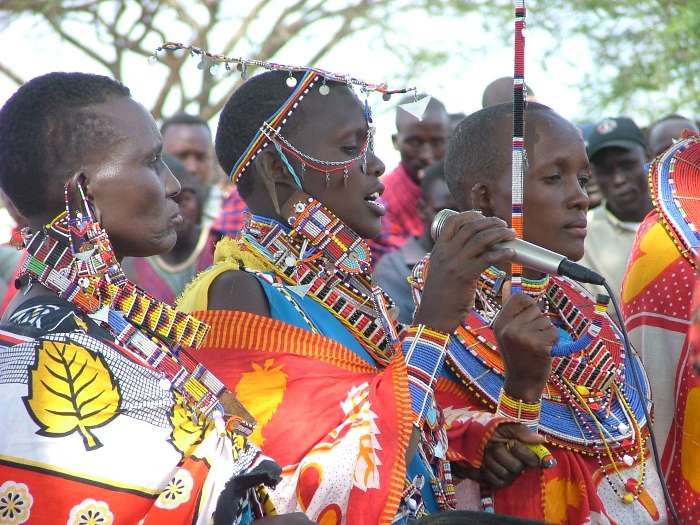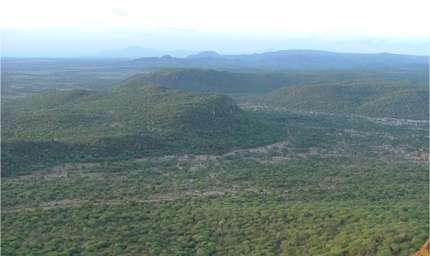Involve young and female Maasai in land reform in Kenya, says researcher

Management of pastures in Kenya is due for major overhaul: only then the negative developments around the privatization wave of the past few decades may be restored. To avoid social unrest and create a fair, productive and equitable management, Kenyan policymakers should involve young and preferably female Maasai in land reform processes. This was discovered by Caroline Archambault during her research project into rural Kenya. She conducted her research with funding from the Talent Scheme of NWO Social Sciences.
In Kenya, the government several decades ago started reallocating the arid pastures which the Maasai, a nation of semi-nomadic pastoralists, used on a common basis. A wave of privatization put this age-old custom largely to an end. The pastures in southwestern Kenya, roughly between Nairobi and Kilimanjaro, were rather arbitrarily cut into rectangular pieces of land by government agencies. These plots of roughly 270 hectares were assigned to private owners.
This had far reaching effects on the social structure of the Maasai people. For them, heading their herds over large distances, forced by the dry or wet season, is simply vital. The quality of the pieces of land is very diverse: some were assigned fertile agricultural land, others a plot with only rocks and stones. Poverty and inequality added to dislocation and a sense of injustice was the result.
Protect area against land grab
Caroline Archambault: 'The government aimed at increasing prosperity through privatization. It proved to generate illegal land grab, fraud and lack of land. A rich Maasai elite, often with good connections in Nairobi, amassed more land than was agreed. And for the average Maasai getting involved with privatization is the only way to protect its territory against land grab. Not infrequently, however, sudden expenses have to be paid by selling the land in whole or in part.'
Researchers started work on how and where something could be salvaged. They discovered that the scientific and policy debate on privatization has completely ignored women and young people. Land ownership has traditionally been a male affair. Property deeds are made up with the name of the husband. But it is precisely young people and women who have in recent years become more politically alert and self-confident, because they play a crucial role in pastoral production. They fight for their right to be heard.

Women no longer accept deprivation and want a say in land and natural resources, but so far lack the channels to make their voices heard. 'Also,' as Archambault found, 'there is less consensus among women on the solution and they use different arguments than men. Some women are perfectly happy with a permanent homestead. Especially if they can live with other families: they can share childcare services or replace each other when someone is sick. By example, burning charcoal can provide an additional income.'
Conclusion is that women and youth must be closely involved in discussions on land policies. Furthermore, the government needs social and economic investment in rural communities. Policy renewal around land management is necessary so that Maasai families can reap the benefits of private ownership and feel protected. Successful change in land management can serve as a blueprint for other areas in Africa.
Fieldwork and interviews
Archambault incorporated her Veni project into a long-term study in the region by John Galaty. At nine locations research has been done into the cause and effect of the reallocation of pastures. Researchers performed field work and interviews in economically diverse areas. In addition, they draw quantitative data from survey of households.
Archambault has been studying Kenya since 2003. Around the border between neighboring countries Kenya and Tanzania about 1.5 million Maasai live in an area of 160 thousand square kilometers.
More information: Pastoral Rangeland Privatization and Women's Well-Being: A Gendered Analysis of Tenure Transformations among the Maasai of Southern Kenya. www.nwo.nl/en/research-and-res … s/63/2300161363.html



















